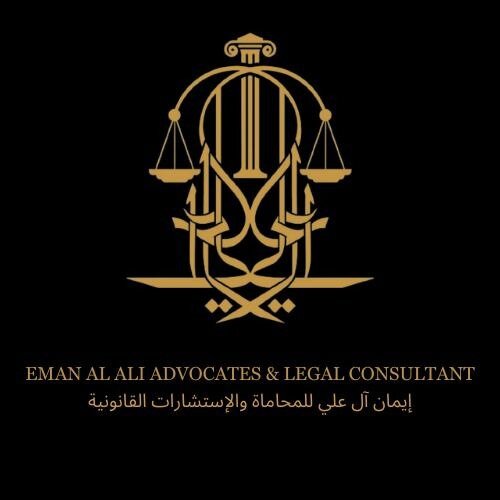Best Corporate & Commercial Lawyers in United Arab Emirates
Share your needs with us, get contacted by law firms.
Free. Takes 2 min.
Or refine your search by selecting a city:
List of the best lawyers in United Arab Emirates

Mohamed Eid Al Suwaidi Advocates & Legal Consultants
30 minutes Free ConsultationUnited Arab Emirates Corporate & Commercial Legal Articles
Browse our 6 legal articles about Corporate & Commercial in United Arab Emirates written by expert lawyers.
- How Can Businesses Comply with AI and Legal Tech Laws in the UAE? (11 Practical Steps)
- AI systems and legal-tech tools are altering how companies function throughout the UAE. Yet, as innovation increases, so does the need for effective AI governance and compliance with local technology and data protection regulations. The UAE’s developing legislative environment compels enterprises to manage risks, safeguard personal data and promote transparency... Read more →
- 6 Risks and Consequences of AI Non-Compliance in the UAE
- Artificial Intelligence (AI) is transforming the legal and commercial landscape across the UAE, but rapid adoption also brings new responsibilities. With the nation’s strong commitment to innovation and digital transformation, reflected in initiatives like the UAE National Strategy for Artificial Intelligence 2031, regulators are also introducing more robust rules for... Read more →
- How Do I Resolve a Commercial Contract Dispute in the UAE?
- Table of ContentsIntroduction: Navigating Business DisagreementsUnderstanding the Legal Framework in 2025A Step-by-Step Guide to Dispute ResolutionStep One: Review the Contract ThoroughlyStep Two: Attempt Negotiation and MediationStep Three: Arbitration in the UAEStep Four: Litigation in UAE CourtsCommon Causes of Commercial Contract DisputesThe Role of Free Zones in Dispute ResolutionPractical Tips for... Read more →
About Corporate & Commercial Law in United Arab Emirates
Corporate and commercial law in the United Arab Emirates governs the legal framework for businesses, companies, and commercial transactions. It sets out the rules for establishing businesses, managing commercial relationships, resolving disputes, and ensuring compliance with national and regional regulations. The UAE has developed a robust environment that encourages investment and entrepreneurship while maintaining strict legal compliance. Corporate and commercial law covers areas such as company formation, mergers and acquisitions, joint ventures, contracts, franchising, employment, intellectual property, and commercial litigation. These laws are shaped by a mix of federal legislation, emirate-level regulations, as well as the unique rules of free zones and financial centers.
Why You May Need a Lawyer
Seeking legal advice in the field of corporate and commercial law is crucial for both new and established businesses. A lawyer can protect your interests and help ensure legal compliance. Common situations where you may require a lawyer include:
- Setting up or restructuring a company in the UAE mainland, a free zone, or offshore
- Drafting, reviewing, and negotiating commercial contracts and agreements
- Navigating mergers, acquisitions, or business sales
- Resolving shareholder and partnership disputes
- Complying with foreign investment and ownership regulations
- Handling employment matters including contracts, policies, and disputes
- Protecting intellectual property such as trademarks and patents
- Dealing with bankruptcy, insolvency, or liquidation procedures
- Managing regulatory compliance and responding to governmental inquiries
- Representing you in commercial litigation or arbitration
Local Laws Overview
Corporate and commercial law in the UAE is shaped by a combination of federal laws, emirate-specific regulations, and rules specific to free zones. Some of the most important legal aspects include:
- Federal Law No. 2 of 2015 (as amended by Federal Decree Law No. 26 of 2020) - Commercial Companies Law: Regulates how companies are formed, operated, and dissolved in the UAE mainland. Recent amendments allow 100 percent foreign ownership in certain sectors.
- Commercial Transactions Law: Governs business transactions, banking, commercial contracts, bankruptcy, and commercial paper.
- Economic Substance Regulations: Requires certain businesses to have substantial activities within the UAE to comply with international tax standards.
- Consumer Protection and Competition Laws: Protects consumer rights and aims to ensure fair competition.
- Employment Law: Employers and employees must comply with the UAE Labour Law, and each free zone may have its own employment regulations.
- Free Zone Regulations: Businesses established in over 40 free zones have their own company laws and offer benefits such as complete foreign ownership, however, specific regulations apply.
- Data Protection and Cyber Laws: Increasingly important for businesses handling digital information.
- Anti-Money Laundering (AML) and Combating the Financing of Terrorism (CFT): Businesses must comply with robust regulations to prevent illegal financial activities.
Frequently Asked Questions
What types of business entities can I set up in the UAE?
You can establish various types of entities such as limited liability company (LLC), branch office, representative office, public joint stock company, private joint stock company, or free zone company. The choice depends on business activities, ownership requirements, and intended location.
Can foreigners own 100 percent of a business in the UAE?
Recent amendments to the Commercial Companies Law allow 100 percent foreign ownership in many sectors on the UAE mainland, except for activities of strategic importance. In most free zones, full foreign ownership has always been permitted.
What is the difference between mainland and free zone companies?
Mainland companies can do business anywhere in the UAE and may now allow full foreign ownership in certain sectors. Free zone companies benefit from tax exemptions and 100 percent ownership but are generally restricted to operating within their free zone or abroad unless using a local distributor.
How are commercial disputes resolved in the UAE?
Most commercial disputes are settled through negotiation, mediation, litigation in UAE courts, or arbitration. Free zones like the Dubai International Financial Centre (DIFC) have their own courts with English common law procedures.
What are the main requirements for drafting a valid contract in the UAE?
Contracts should be in writing, specify clear terms, and be legally compliant with UAE law. While oral contracts are generally enforceable, written contracts are highly recommended, especially for complex transactions.
Are there restrictions on repatriating profits?
There are no restrictions on repatriating profits for most types of business and free zone companies. However, some requirements may apply depending on the nature of the business and sector regulations.
Do UAE companies need to have a local partner or sponsor?
Historically, mainland companies required a UAE national partner for majority ownership. With recent reforms, many business activities now permit 100 percent foreign ownership. Sponsorship requirements still apply in certain sectors and for some regulatory processes.
How is intellectual property protected in the UAE?
Trademarks, patents, copyrights, and designs are protected under federal laws. Registration is essential for enforcement, and violations can lead to significant penalties.
What is the role of the Economic Substance Regulations for businesses?
Certain companies must meet economic substance tests to confirm they are conducting substantial activities in the UAE, filing periodic reports with authorities to avoid penalties and maintain their operating license.
What are the key compliance obligations for companies in the UAE?
Companies must comply with annual licensing, tax filings (including VAT where relevant), renewal procedures, anti-money laundering rules, and regulatory reporting depending on their business activities and jurisdiction.
Additional Resources
- Ministry of Economy - Responsible for company registration and economic policies
- Department of Economic Development (DED) - Oversees business licensing in each emirate
- Dubai International Financial Centre (DIFC) and Abu Dhabi Global Market (ADGM) - Specialized jurisdictions for international business
- Chambers of Commerce - Offer support, resources, and networking for business owners
- Dubai Chamber of Commerce and Industry - Guidance and support for commercial activities
- Federal Tax Authority - VAT and tax regulations for businesses
- UAE Ministry of Human Resources and Emiratisation - Labor and employment guidelines
- UAE Intellectual Property Office - For trademark, patent, and copyright registrations
Next Steps
If you need assistance with a corporate or commercial legal matter in the UAE, take the following steps:
- Clearly define your business needs and gather all relevant documents
- Research reputable law firms or legal advisors experienced in corporate and commercial matters
- Arrange a consultation to discuss your issues and objectives
- Ensure your legal counsel is familiar with UAE federal and local laws, as well as regulations relating to free zones if relevant
- Follow your lawyer's recommendations regarding agreements, compliance, or dispute resolution
- Maintain open communication and regularly review your corporate documents and compliance status
Legal processes in the UAE can be complex due to a mix of federal and local regulations. Professional guidance is essential to ensure your business is protected and compliant.
Lawzana helps you find the best lawyers and law firms in United Arab Emirates through a curated and pre-screened list of qualified legal professionals. Our platform offers rankings and detailed profiles of attorneys and law firms, allowing you to compare based on practice areas, including Corporate & Commercial, experience, and client feedback.
Each profile includes a description of the firm's areas of practice, client reviews, team members and partners, year of establishment, spoken languages, office locations, contact information, social media presence, and any published articles or resources. Most firms on our platform speak English and are experienced in both local and international legal matters.
Get a quote from top-rated law firms in United Arab Emirates — quickly, securely, and without unnecessary hassle.
Disclaimer:
The information provided on this page is for general informational purposes only and does not constitute legal advice. While we strive to ensure the accuracy and relevance of the content, legal information may change over time, and interpretations of the law can vary. You should always consult with a qualified legal professional for advice specific to your situation.
We disclaim all liability for actions taken or not taken based on the content of this page. If you believe any information is incorrect or outdated, please contact us, and we will review and update it where appropriate.
Browse corporate & commercial law firms by service in United Arab Emirates
United Arab Emirates Attorneys in related practice areas.
Browse corporate & commercial law firms by city in United Arab Emirates
Refine your search by selecting a city.
















